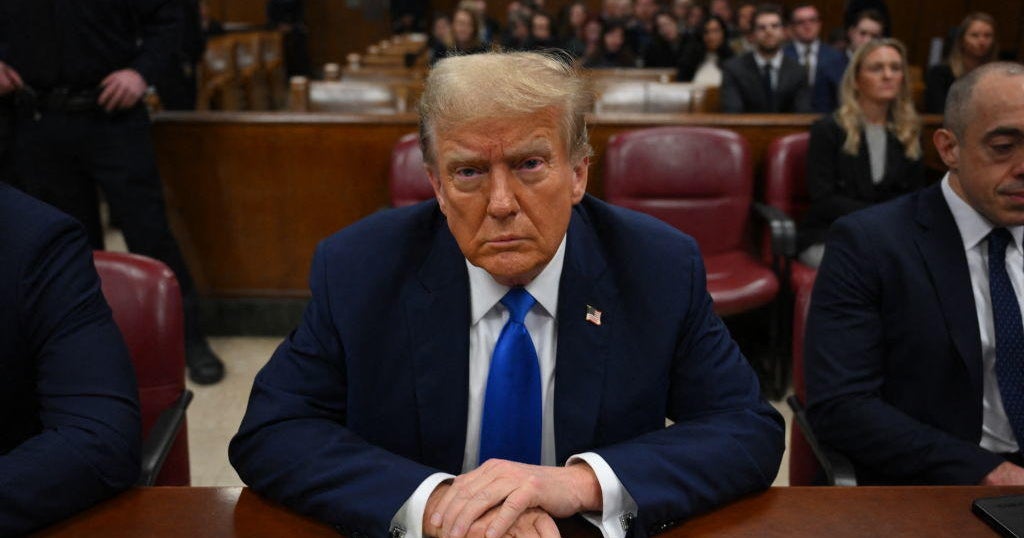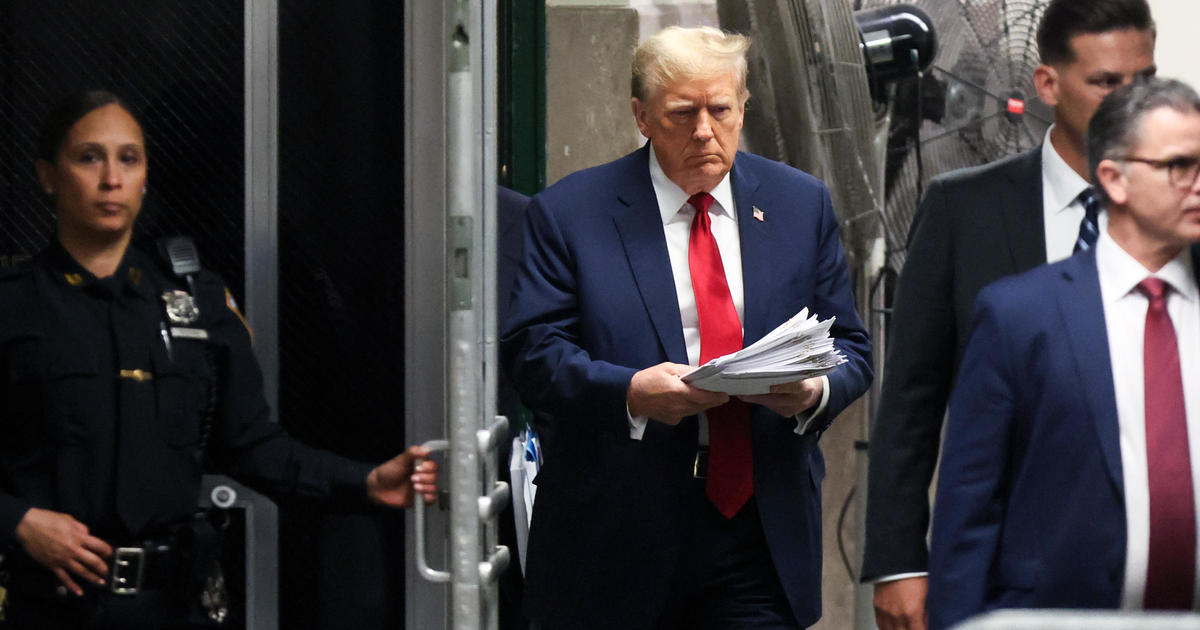Why the stall on Andrew Puzder, Trump’s labor secretary pick?
Andrew Puzder’s nomination to be President Donald Trump’s labor secretary is bogged down. Senate hearings on the controversial fast-food executive have been delayed four times, with a new date scheduled for next week.
The apparent snag is Puzder’s difficulty selling his holdings in privately owned CKE Restaurants, the parent corporation of Hardee’s and Carl’s Jr. Until he worked out a plan to do that and filed a financial disclosure, his nomination couldn’t go forward. But after he filed his paperwork, apparently laying out such a plan, the new hearing was slated for Feb. 16.
But other obstacles lie in the way: fierce Democratic and union criticism of his actions as CKE’s chief executive and his conservative beliefs, as well as personal issues – his divorce and employing an undocumented immigrant as a housekeeper.
For his part, Puzder remains publicly steadfast in his desire to head the Department of Labor, despite a news report that he is losing heart. “He’s all-in,” said Michael Lotito, a friend and lawyer who represents employers on workplace matters. “No one is more frustrated that hearings can’t take place than Andy.”
Puzder finds himself on a Democratic target list that has included Mr. Trump’s choices as Education Department secretary, businesswoman Betsy DeVos, and as Environmental Protection Agency administrator, Oklahoma Attorney General Scott Pruitt. Democrats portray these nominees as enemies of their intended agencies. On a largely partisan vote, DeVos narrowly won Senate confirmation Tuesday.
“It’s hard to avoid the fox-guarding-the-henhouse analogy,” said Heidi Shierholz, director of policy at the liberal Economic Policy Institute and former chief economist in the Obama Labor Department, about Puzder. “His anti-labor positions disqualify him from running the department.”
Republicans, of course, view the Puzder nomination differently. Sen. Lamar Alexander of Tennessee, who chairs the committee that will vet him, lauded Puzder as someone who “understands how excessive regulation can destroy jobs and make it harder for family incomes to rise.”
Among Republican labor secretaries, Puzder, who wouldn’t be interviewed for this story, would be only the second hailing from the business world. The first was Raymond Donovan, a New Jersey construction executive who unions also reviled. He helped President Ronald Reagan break the air traffic controllers union after they went on strike in 1981. Other GOP Labor Department chiefs were from unions, government, philanthropy or academia.
The three sets of hurdles confronting Puzder present him with different challenges:
Divesting his company holdings. This is a thorny and potentially time-consuming problem because CKE is not a public traded company. The goal is to prevent any possible conflict of interest with regulating an investment Puzder might hold, such as interest in a fast-food enterprise with thousands of employees.
Billionaire Vincent Viola, Mr. Trump’s choice as secretary of the Army, backed out last Friday, citing trouble separating himself from his businesses. He owned an air carrier and a high-frequency trading firm, among other things, and said selling the companies would wreck them. Similarly, Wall Streeter Anthony Scaramucci apparently won’t get a big White House job because he had sold his company to a Chinese conglomerate.
A private equity firm called Roark Capital Group – named after Howard Roark, the protagonist in the novel “The Fountainhead,” by Ayn Rand, the avatar of unfettered capitalism -- bought CKE in 2013. Founded by entrepreneur Carl Karcher in 1941, the company ran into financial trouble 56 years later and turned to Puzder, then a lawyer, for help. Puzder took over as chief executive in 2000.
Ownership by a PE outfit is full of complexities when it comes to cashing out an executive. Puzder has an undisclosed amount of stock in CKE, yet he can’t simply unload shares via a broker because there is no public market for them. He needs the consent of Roark principals to divest, for one thing. And buyout firms are hemmed in by many legal strictures. With Roark, little is known about the nature of Puzder’s CKE assets.
Contrast his situation with those of DeVos, who was confirmed Tuesday as education secretary, and new Secretary of State Rex Tillerson, who have more easily set up mechanisms to divest their business holdings. DeVos had ownership positions in numerous private businesses that she and her husband control, thus she had much greater flexibility.
According to an agreement struck with the U.S. Office of Government Ethics, which polices conflicts of interest, Devos must divest herself of 106 businesses. Tillerson, who has headed oil giant Exxon Mobil (XOM), need only unload millions of dollars worth of shares that trade on the New York Stock Exchange.
An executive in a PE-held entity like CKE usually must give the owning firm first right of refusal to purchase the person’s stake, said Timothy Gregg, a partner with Bradley Arant Boult Cummings, a Birmingham, Alabama-based law firm, who advises privately and publicly held companies. But perhaps Roark does not have enough cash on hand to buy all of Puzder’s stake. Then Puzder could approach outside investors. But Roark must approve them – it surely doesn’t want a swashbuckler like activist investor Carl Icahn charging through the door.
Another problem, Gregg said, might be restrictions that any Roark debt might carry, known as covenants. “They could limit the ability of Roark to repurchase Puzder’s stake,” he noted. “This can get very difficult.”
Vehement resistance from foes. To the ire of liberal opponents, the nominee has a long record of combating government regulation, a $15 minimum wage and Obamacare. “Our system lacks any meaningful mechanism for tracking the cost of regulations,” Puzder said in congressional testimony in 2012, “and balancing that against the need for businesses to use their profits to expand, grow and thereby create jobs.”
In California, where CKE has been based for decades (it will soon move its headquarters to Nashville, Tennessee), labor laws mandate breaks for employees that can conflict with surges in customers coming through the door, he has complained. This leads to long lines and consumer griping. While he doesn’t oppose “rational increases in the minimum wage,” he has said, they shouldn’t be so high they “kill jobs.”
Obamacare, Puzder told the Los Angeles Times last year, has led to rising health insurance rates and deductibles, while encouraging employers to lay off full-time employees to get under the 50-worker mark, where they are exempt from requiring private coverage. CKE offers health care to managers and full-time employees, with the employer paying 60 percent of the premium (the national average is 83 percent, according to Zane Benefits, a health-care research and service provider.)
Still, opposition groups have slammed Puzder for violations of labor law, citing class-action lawsuits against CKE for allegedly underpaying or denying overtime pay for workers that cost his company millions of dollars to settle. CKE has replied that it adheres to the law.
Two Democratic senators, Patty Murray of Washington and Elizabeth Warren of Massachusetts, held a forum featuring a current and two previous CKE employees complaining they weren’t paid for overtime or had to work on breaks. Last month, fast-food workers and others held anti-Puzder demonstrations in 12 cities.
Puzder also has drawn brickbats for airing racy TV ads featuring scantily clad models munching hamburgers, which Democrats castigated as showing no respect for women. Puzder’s response: “I like beautiful women eating burgers in bikinis.”
Personal issues. Press reports on Monday disclosed that Puzder had employed an undocumented immigrant as a housekeeper. Two of President Bill Clinton’s nominees in 1993, Zoe Baird and Kimba Wood, were forced to drop their bids for attorney general for using nannies who were illegally in the U.S. But the Trump administration, unlike Clinton’s, has shrugged off the incident.
Puzder issued a statement saying that, once he discovered the servant lacked documentation, he fired her and offered her help in getting legal status. He went on to say he and his wife paid back taxes due to the U.S. and California for the woman. Puzder’s wife paid the housekeeper in cash, a spokesman said. “It was a mistake and he’s owning that.”
This prompted Ross Eisenbrey, vice president of the Economic Policy Institute, to opine: “”Puzder’s violation of immigration laws make him a strange choice to be a cabinet officer in Donald Trump’s administration, given the president’s near-hysteria” over illegal workers in the U.S.
Another problematic aspect of Puzder’s nomination is the allegation of his first wife, during their divorce proceedings in the 1980s, that he had abused her physically. Back then, she appeared in disguise on “The Oprah Winfrey Show” to detail the purported assaults.
Since then, however, the ex-wife, Lisa Fierstein, has recanted the abuse charge, which she said she’d made at her lawyer’s urging. Puzder’s spokesman said the nominee, who denied he had abused his former wife, and Fierstein have spent the last two Thanksgivings together with family.
Just the same, the Campaign for Accountability, which bills itself as an ethics watchdog group, has asked a federal court to unseal Puzder’s divorce records.
So regardless of which way Puzder’s nomination goes – and Education Secretary DeVos’s example suggests he will prevail in the end – it will be a bloody victory.



